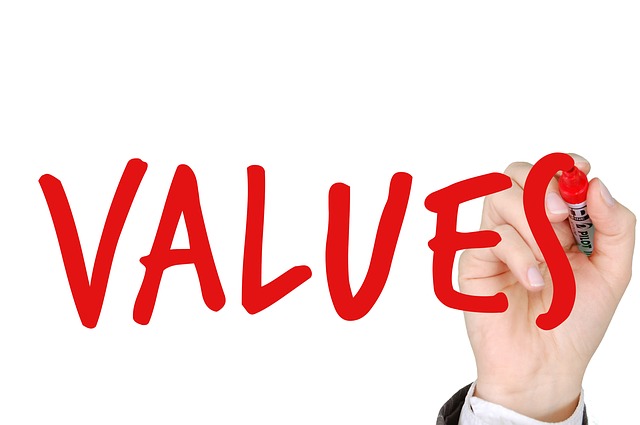3 Survival Skills for Post-Pandemic Careers

“I thought it was me,” remarked Catherine while introducing herself at a small gathering I hosted on career shifts. Catherine lost her job in the early days of the pandemic thanks to private equity acquiring her employer, a company with whom she had worked for over a dozen years. She was dumbfounded by the unexpected twists and turns in her career over the past three years.
“After I got over the shock, I did some really good work on my goals and on the type of job I was looking for.” She paused and added, “I was proud of the work I did.”
Catherine landed a job she was excited about shortly thereafter. What she didn’t see coming was another layoff, only this time it occurred a mere 14 months after she had begun her new gig.
Catherine’s story reflects an important structural shift that’s happening for workers across our nation. The shift demands that we all adopt a new set of skills.
Let’s face it. No longer can workers expect to stay with a single employer over the arc of their career. Careers are changing — radically. A post-pandemic career will be marked by more frequent employment interruptions and be characterized more by skills than progressive experience.
What brought on these changes?
Many of us are quick to point to the pandemic as the catalyst for such changes. While a contributor, several additional factors combine with the pandemic to make this a bellwether time for careers. For example, the technology industry’s long promise of workplace efficiency is starting to reshape employment. No longer do we need a large staff of finance professionals to close the monthly books for a business. We can do so with the click of a button.
This type of job redefinition is happening across all industries — from those that use robotics on the production line to others that rely on a touchscreen monitor when ordering a morning coffee.
How can we prepare ourselves for these changes?
In response to structural changes to traditional career trajectories, here are three valuable tools to position yourself for the changes taking place in today’s post-pandemic careers:
Change the architecture of your career story
Structural changes affecting the workforce will require a new career story. You must leave behind the previously tried-and-true use of chronology as your story’s core architecture. Instead, build your story upon the values you hold that position you as a unique contributor, and that dovetail with the needs of employers.

Catherine held a handful of roles with her large global employer for over 15 years. Her chronological story highlighted stints as a product researcher, a product manager, and a program manager for a line of technical B2B products. In her new values-based story, Catherine leads with her interest and commitment to innovation and her desire to work with product enhancements that solve larger social problems. The glue that holds her story together is no longer her career progression, but the unique value Catherine can add.
Refine your expectations
To be successful in this new employment landscape, Catherine needs to change more than her story. She needs to reconstitute the expectations she holds for herself and her career.
Catherine always dreamed of becoming a general manager by the time she was 40. It was how she assessed every career step along the way. Her strategic moves aligned with her expectations, and she’d been recognized nationally and internationally for her contributions.
But facing unemployment twice in two years left her wondering whether she’d attain a general manager position by age 40. She knew she needed to re-examine the meaning of this job title and all that went along with it. In doing so, its prominence ebbed. Asking herself other questions about her personal and professional expectations, she became aware of broader interests — like sustainability’s role in the supply chain. These questions reframed her lock-step goal of a GM title. Her options expanded and so did her energy.

Embrace the scope of your journey
Catherine struggled to describe her interrupted career. She’s not alone. As a society, we lack the vocabulary to support times when we encounter a disconnection to all or part of our familiar identity. Without the vocabulary, we struggle to place our experience of disconnection in a larger context.
My research on career shifts revealed that we use the terms “change” and “transition” interchangeably even though they hold different meanings. Change occurs when we alter particulars — we land a new job, move to a new apartment, or adopt new habits. The important thing to remember when we opt for change is that we maintain a known expression of ourselves. Our identity remains intact during such times.
Transitions occur when we experience a shift in what holds value and meaning to us. It offers an opening for thinking about our identity and our sense of self. Transitions invite us to re-examine the assumptions upon which we anchor our expectations and definition of who we are.
For Catherine and others like her, the vocabulary of change and transition helped her respond to the instability caused by two career shocks. Was she embarking on a change to her career or was this a transition?
Careers in our post-pandemic world are influenced by a lot more than remote work and quiet-quitting. We’re challenged to succeed in a radically different work environment that demands new skills. Don’t get left behind at this important inflection point in employment history. Adopt these three approaches to accelerate your success.
This guest post was authored by Linda Rossetti
Linda Rossetti is a former EVP of HR at global Fortune 500 Iron Mountain, a Harvard MBA, and a pioneering researcher on individuals’ experience at the crossroads of their lives. She is the founder of The Transition Institute,LLC, a firm that partners with corporations, nonprofits and individuals on a new way to successfully move through major changes. Her work has been featured on NPR, NECN, CBS/WBZ, Money Magazine, SMARTBrief, the BBJ, and other outlets. Her new book is Dancing with Disruption: A New Approach to Navigating Life’s Biggest Changes (Rowman & Littlefield Publishers, May 5, 2023). Learn more at lindarossetti.com.
*******
Ms. Career Girl strives to provide valuable insights you can use. To see more from our columnists and guest authors, check these out! Or subscribe to our weekly email featuring our latest articles. We’re also present on Medium!

